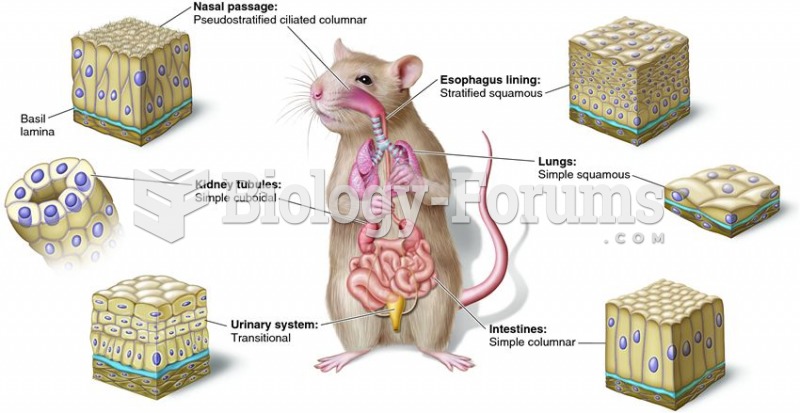|
|
|
Adolescents often feel clumsy during puberty because during this time of development, their hands and feet grow faster than their arms and legs do. The body is therefore out of proportion. One out of five adolescents actually experiences growing pains during this period.
By definition, when a medication is administered intravenously, its bioavailability is 100%.
Human neurons are so small that they require a microscope in order to be seen. However, some neurons can be up to 3 feet long, such as those that extend from the spinal cord to the toes.
Oxytocin is recommended only for pregnancies that have a medical reason for inducing labor (such as eclampsia) and is not recommended for elective procedures or for making the birthing process more convenient.
You should not take more than 1,000 mg of vitamin E per day. Doses above this amount increase the risk of bleeding problems that can lead to a stroke.
 Comparison of breast cancer and fibrocystic disease. (A) Breast with a malignant tumor growing in th
Comparison of breast cancer and fibrocystic disease. (A) Breast with a malignant tumor growing in th
 Compressing the breast between plates provides a better image of breast tissue. Regular mammograms ...
Compressing the breast between plates provides a better image of breast tissue. Regular mammograms ...





